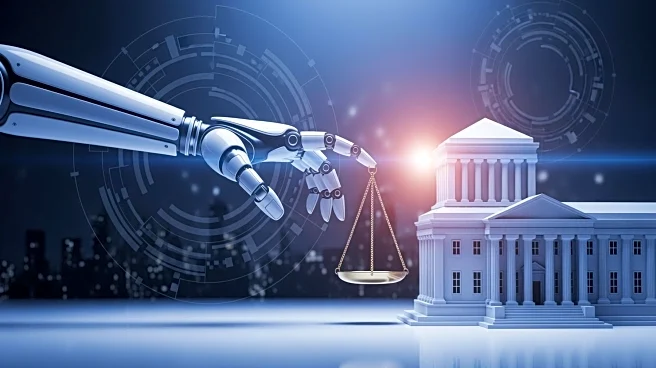What's Happening?
OpenAI, led by CEO Sam Altman, is facing multiple lawsuits, including one from the parents of Adam Raine, who allege that ChatGPT contributed to their son's suicide. OpenAI's legal strategy has shifted from a conciliatory approach to a more aggressive
stance, as evidenced by invasive discovery requests in the Raine case. The company is also dealing with lawsuits from publishers and authors over intellectual property rights. OpenAI's transition from a nonprofit to a for-profit model has been driven by fundraising needs, with significant investments contingent on this change. The company is expanding its commercial ventures, including launching new products and services, and has been involved in legal disputes with nonprofits critical of its restructuring.
Why It's Important?
The aggressive legal strategy and expansion of OpenAI highlight the growing tensions between technological innovation and ethical considerations. As OpenAI transitions to a for-profit model, it faces scrutiny over its impact on AI safety and intellectual property rights. The company's actions could influence the broader AI industry, setting precedents for how AI companies handle legal challenges and intellectual property disputes. The outcome of these lawsuits may affect OpenAI's reputation and its ability to attract future investments. Additionally, the company's expansion into various sectors could reshape the AI landscape, impacting competitors and stakeholders in the technology and media industries.
What's Next?
OpenAI is likely to face more lawsuits as it continues to expand its operations and commercialize its AI technologies. The company's legal strategy may evolve further as it navigates these challenges. Stakeholders, including investors and industry leaders, will be closely monitoring OpenAI's actions and their implications for AI safety and intellectual property rights. The company's ability to balance commercial ambitions with ethical considerations will be crucial in maintaining its position as a leader in the AI industry.
Beyond the Headlines
OpenAI's shift from a nonprofit to a for-profit model raises questions about the ethical implications of AI commercialization. The company's aggressive legal tactics may deter smaller organizations from challenging its practices, potentially stifling innovation and competition. The broader impact on AI safety and regulation could influence public policy and industry standards, shaping the future of AI development and deployment.















